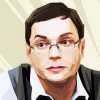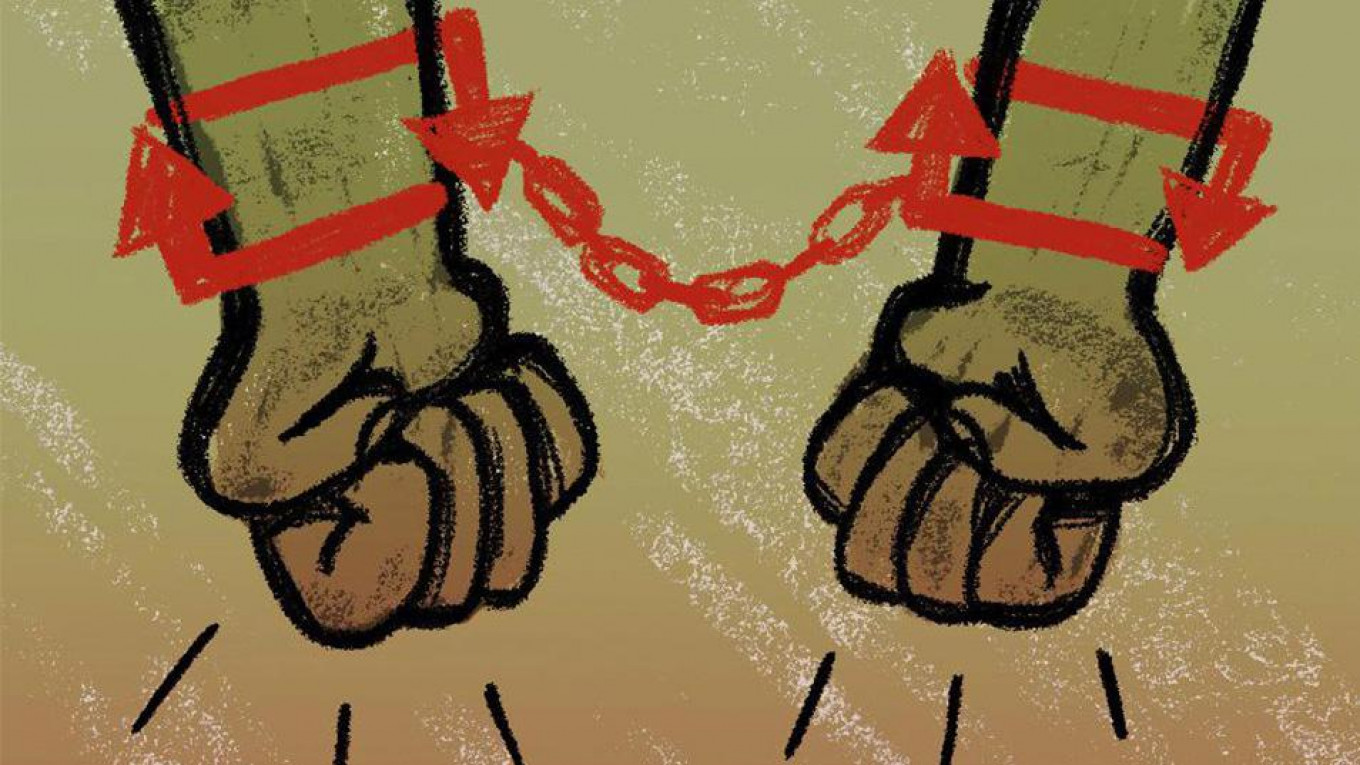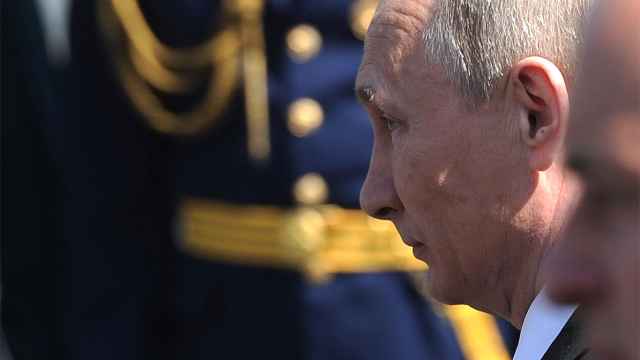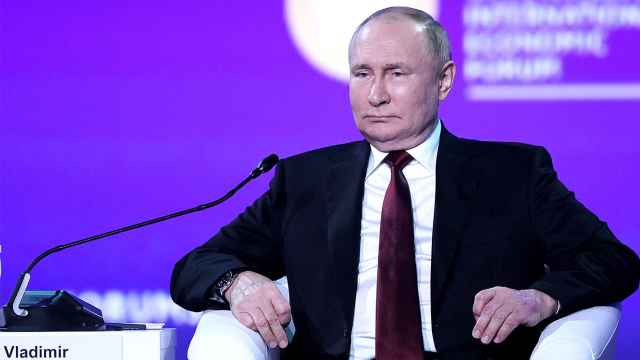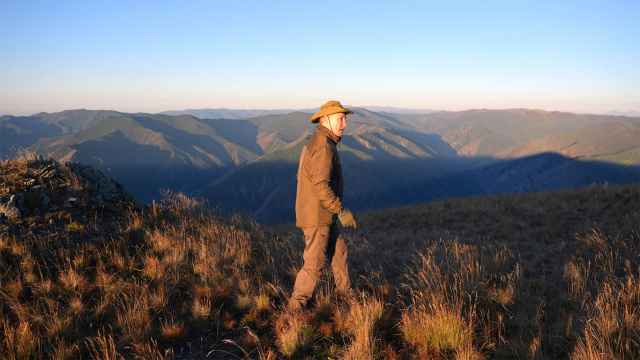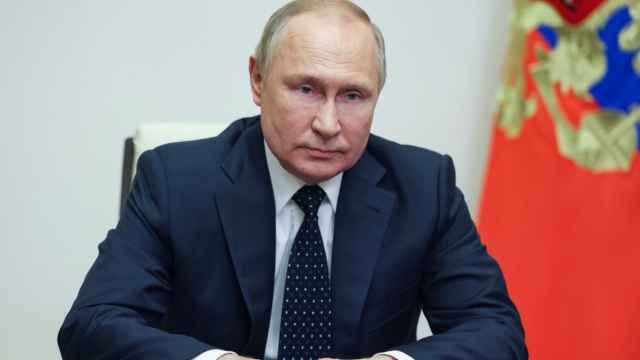Cuba’s dash toward liberalism, Venezuela’s liberation from Hugo Chavez and the end of Colombia’s guerrilla war have overhauled the face of South America. In Africa, too, regimes in Gambia and Zimbabwe witnessed peaceful transitions of power last year.
Europe and the former Soviet Union, however, are clinging to values that reflect the worst of the current world order.
Just as in the 1990s, Russia’s human rights agenda today reflects that of the West. The only difference between then and now is that the human rights agenda has become morally obsolete and few players have enough influence to revitalize or promote it.
Preaching anti-migrant views, conservatives in England successfully won the Brexit vote. In the United States, it would once have been impossible to imagine the president attacking the media or opposing traditional liberal values.
The list of President Vladimir Putin’s friends in Europe is growing and now includes Hungarian Prime Minister Viktor Orban, Czech President Miloš Zeman, and Moldovan President Igor Dodon. His old friends former Italian Prime Minister Silvio Berlusconi and former German Chancellor Gerhard Schröder remain influential in their countries.
From the moment Russia’s human rights movement first appeared in the 1970s — when the Soviet Union and other members of the Conference on Security and Cooperation in Europe signed the Helsinki Final Act — its agenda has been shaped by factors at home and abroad.
Under Leonid Brezhnev the Soviet Union committed itself to upholding human rights and liberal Western values — the same values that Russia’s current leadership has rejected for years.
Some 20 years earlier, as one of the victors of World War II, the Soviet Union co-founded the United Nations, whose Charter championed "international co-operation in ... promoting and encouraging respect for human rights and for fundamental freedoms for all."
As such, the Soviet Union was one of the founding fathers of the postwar world order, at the heart of which lies adherence to peace, the security of mankind and human rights and freedoms.
Of course, the Soviet Union and other socialist countries put their stamp on the conception of human rights, pressuring other states to exclude fundamental provisions from covenants guaranteeing the universal right to own property.
Oil in exchange for human rights: That became the arrangement in the 1970s as a weakened Soviet Union gained access to the European market, giving Moscow a taste of the powerful petrodollar and ensuring its survival for another 15 years.
In return, the Soviet leadership formally committed to upholding human rights and freedoms, safe in the knowledge that its total control over domestic politics would remain unchecked.
This all fundamentally changed in the 1980s when Western states gradually adopted foreign policies that pressured countries with an avowed interest in liberal democratic values to adhere to them more closely.
In the 1990s, Russia declared its adherence to human rights and freedoms, adopted a democratic Constitution and established a whole set of freedoms and institutions previously unknown to Russian law.
At the same time, civic organizations and independent advocacy first appeared in Russia, the media flourished and free elections became part of the political process. Russia’s human rights agenda began to align with that of the rest of the world.
But after Putin came to power in 2000, he ratcheted up the repressive apparatus of the government and strengthened the role of law enforcement and security strongmen, the siloviki.
This caused a prolonged cooling effect and aggressive, anti-liberal rhetoric that culminated in a series of attacks against human rights carried out since Putin returned to the Kremlin in 2012. The brunt of those attacks was aimed at the media, the internet, the political opposition, street protests and civic activism in general.
Now the terms ‘separation of powers,‘ ’checks and balances,‘ ‘‘federalism,‘ ’rule of law’ and ‘a law-based government’ have all but disappeared from the public discourse.
In their place, we hear ‘traditional values,‘ ’the power vertical‘ and ‘the dictatorship of law’.
Until recently, this state of affairs elicited strong condemnation from the stronghold of liberalism in the West. But now that world is falling apart too.
Pavel Chikov is the director of the Agora international human rights group.The views and opinions expressed in opinion pieces do not necessarily reflect the position of The Moscow Times.
This article first appeared in our special ’Russia in 2018’ print edition. For more in the series, click here.
A Message from The Moscow Times:
Dear readers,
We are facing unprecedented challenges. Russia's Prosecutor General's Office has designated The Moscow Times as an "undesirable" organization, criminalizing our work and putting our staff at risk of prosecution. This follows our earlier unjust labeling as a "foreign agent."
These actions are direct attempts to silence independent journalism in Russia. The authorities claim our work "discredits the decisions of the Russian leadership." We see things differently: we strive to provide accurate, unbiased reporting on Russia.
We, the journalists of The Moscow Times, refuse to be silenced. But to continue our work, we need your help.
Your support, no matter how small, makes a world of difference. If you can, please support us monthly starting from just $2. It's quick to set up, and every contribution makes a significant impact.
By supporting The Moscow Times, you're defending open, independent journalism in the face of repression. Thank you for standing with us.
Remind me later.

